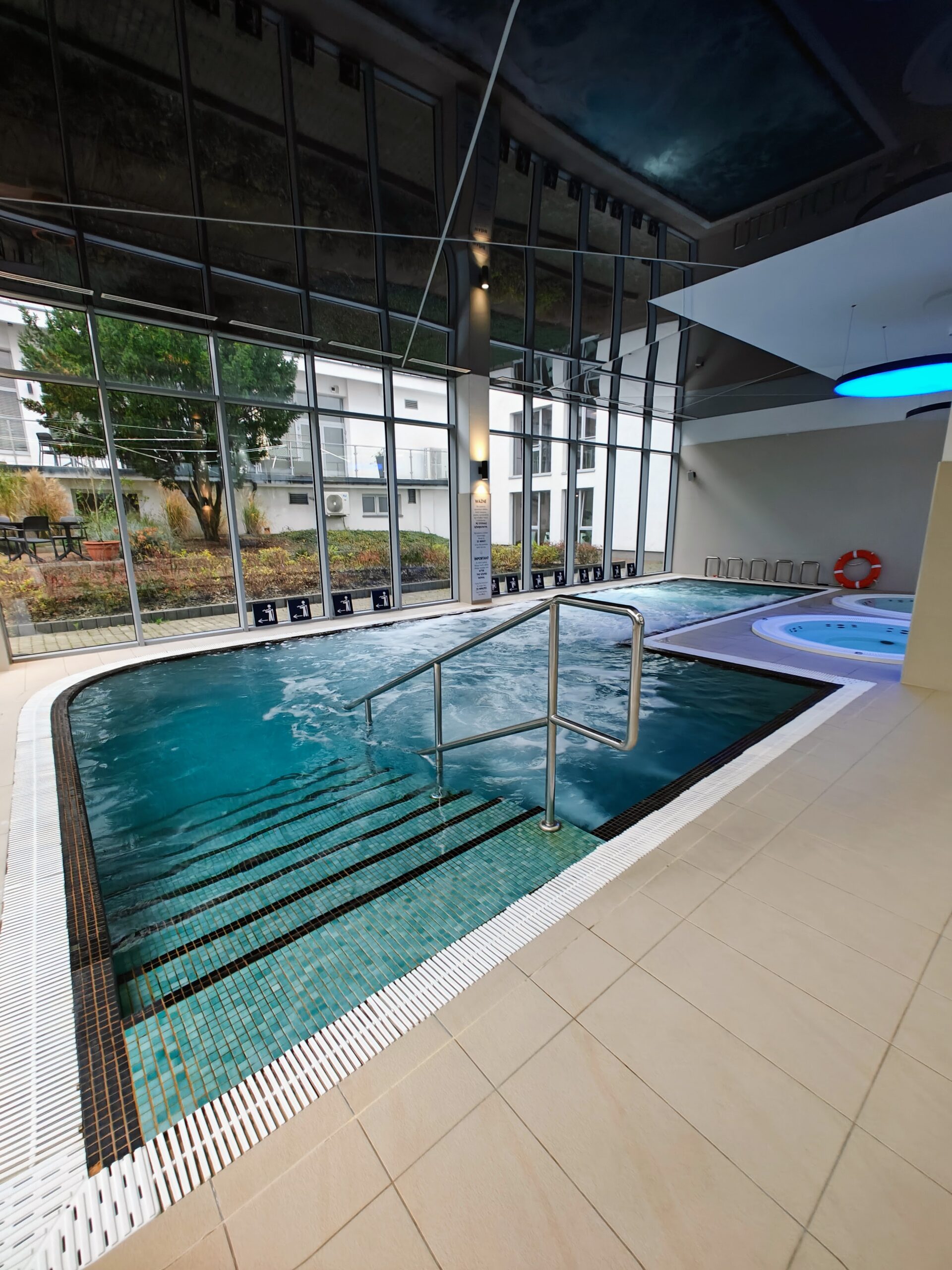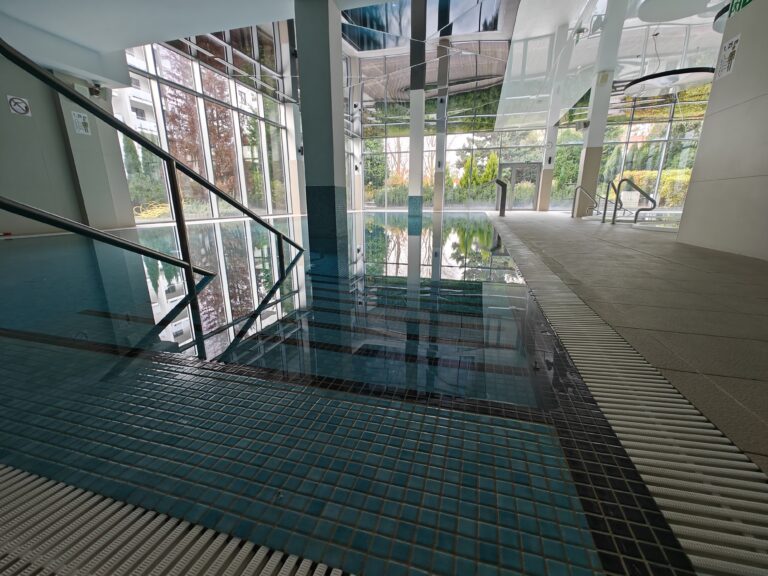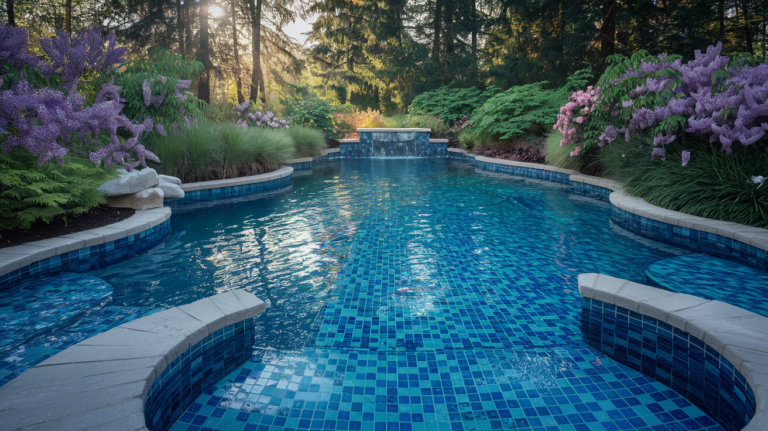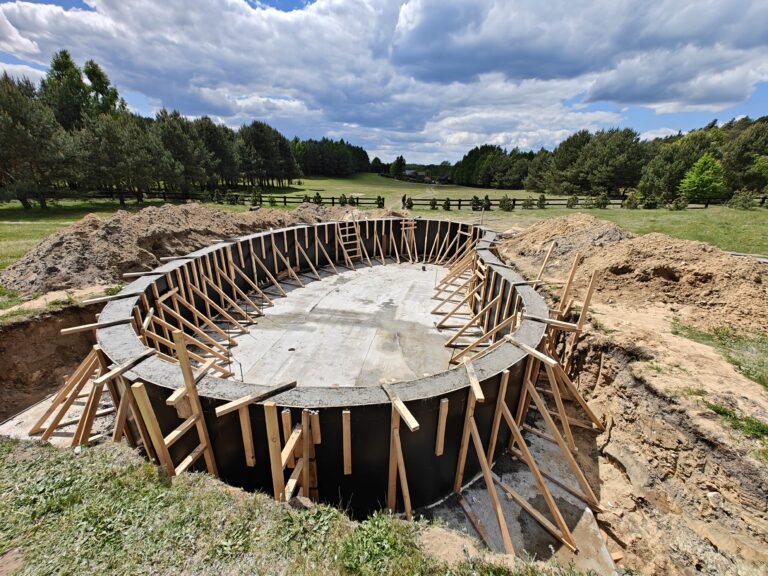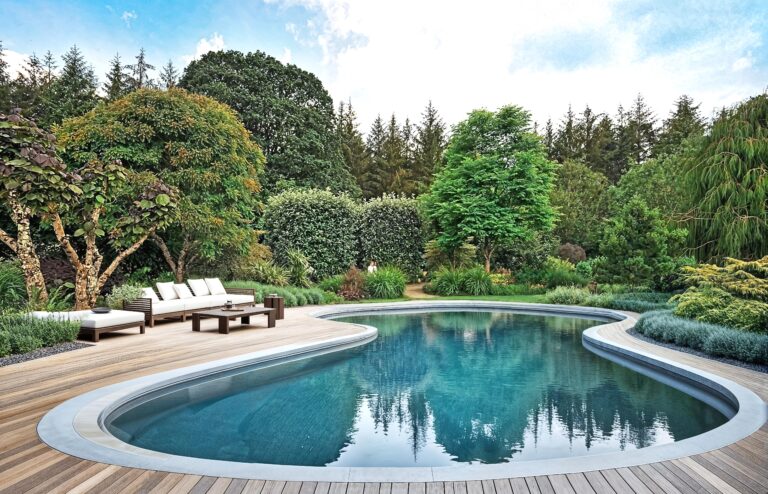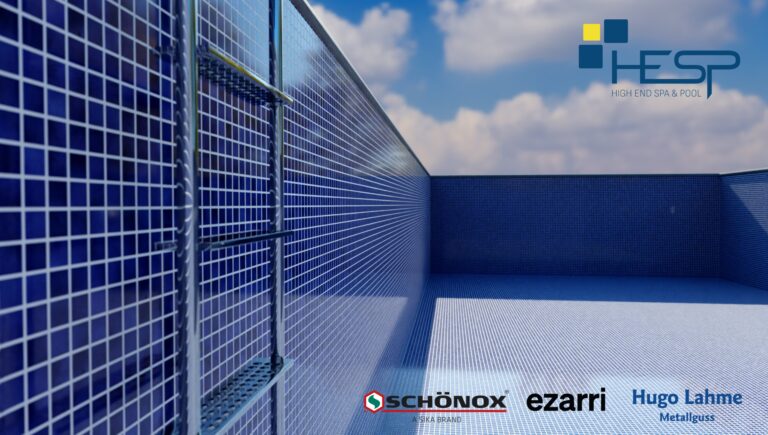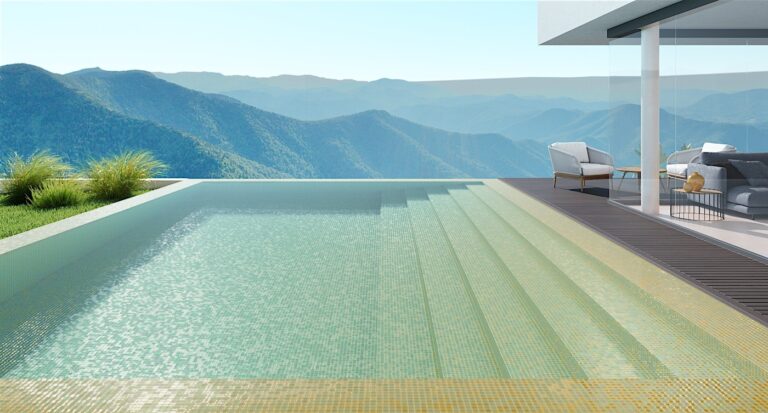Membrane filtration in swimming pools – new generation clean water?
Crystal clear pool water is an absolutely fundamental goal of every pool owner and the basis of user comfort. Traditional filtration methods, while effective, have their limitations. Increasingly in the world, membrane filtration is emerging as an alternative or supplement. Is it an ideal solution? Let’s take a closer look at this technology, focusing on the use of membrane filtration in swimming pools, its advantages and disadvantages.
What exactly is membrane filtration and how does it work?
Membrane filtration is the process of separating contaminants from water using a semi-permeable membrane that acts like a sieve with microscopic pores. Under pressure, water flows through the membrane, trapping contaminants of larger sizes. In the context of swimming pools, ultrafiltration (UF) is most commonly used, and nanofiltration (NF) is less common. Reverse osmosis (RO), due to its high cost and specificity, is practically not used in swimming pools.
How does ultrafiltration work in swimming pools?
Ultrafiltration removes from pool water:
- Mechanical contaminants: sand, silt, pollen, hair.
- Microorganisms: bacteria, viruses (to a significant extent), algae.
- Organic compounds: cosmetic residues, sweat, urea.
Advantages of membrane filtration in swimming pools:
- High efficiency: Removes much more contaminants than traditional sand filters, providing crystal clear water.
- Reduction of chemical consumption: By removing most organic contaminants and microorganisms, the use of chlorine and other disinfectants can be significantly reduced. This, in turn, translates into less skin and eye irritation, a reduction in chlorine odor, and a lower burden on the environment.
- Better water quality: Water after membrane filtration is softer and more pleasant to the touch.
- Reduced frequency of water changes: With more efficient removal of contaminants, pool water can be changed less often.
- Compact size: UF systems are typically smaller than traditional sand filters of similar capacity.
- Automation capability: The membrane filtration process can be fully automated.
Disadvantages of membrane filtration in swimming pools:
- Higher investment cost: The cost of purchasing and installing a UF system is still typically several times higher than for traditional sand filters.
- The need for prefiltration: Mechanical prefiltration (e.g., mesh or bag filter) is necessary to protect membranes from clogging.
- Biofouling risk: Microorganisms can settle on the surface of membranes, forming a biofilm, which reduces their performance. Regular cleaning and maintenance of membranes (e.g., backwashing, chemical cleaning) is necessary.
- Sensitivity to some chemicals: Some pool chemicals (e.g., flocculants) can damage membranes. Special formulations compatible with UF membranes should be used.
- Need to monitor water parameters: Water parameters (pH, turbidity, free chlorine) should be monitored regularly to ensure optimal operation of the UF system.
Summary:
Membrane filtration, and ultrafiltration in particular, is a promising technology in the field of pool water treatment although it seems that it is yet to mature for today. It offers a number of benefits, such as high filtration efficiency, reduced chemical consumption and improved water quality. However, some disadvantages should be kept in mind, such as a much higher investment cost and the need for regular, rather unusual maintenance. We will be looking into this technology.
Additional information to consider:
- Membrane type: There are different types of UF membranes, varying in material, pore size and performance.
- System configuration: The UF system can be integrated into an existing filtration system or be a separate unit.
- Automation: The degree of automation of a UF system can vary from simple systems with manual control to advanced systems with automatic flushing and monitoring.
-
Crystal clear yet healthy pool water.
Clean pool water is key: Key parameters for health and safety. Do you dream of a refreshing swim in perfectly clean water? You need to know that the quality of the water in your pool has a direct impact on the health and comfort of all bathers. Negligence in this area can lead to unpleasant…
-
Artificial intelligence in pool design: The future of luxury and innovation.
Artificial intelligence (AI) is transforming the world, entering areas that not long ago seemed reserved exclusively for human creativity and experience. From medicine and transportation to art and architecture, its influence is becoming increasingly apparent. One of the most surprising yet fascinating applications of AI is in pool design. Does this mean a revolution in…
-
We are building a swimming pool for Dojo Old Village.
The Old Village Dojo is a uniquely atmospheric place that pays homage to traditional Japanese architecture and martial arts. Located in a picturesque setting away from the hustle and bustle of the city, it offers ideal conditions for concentration, training and contemplation. It is the only training complex in Europe built on the principles of…



